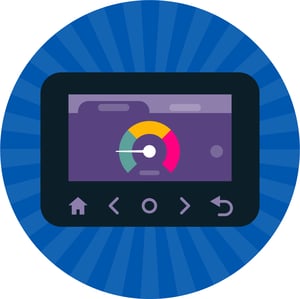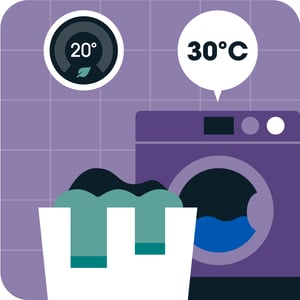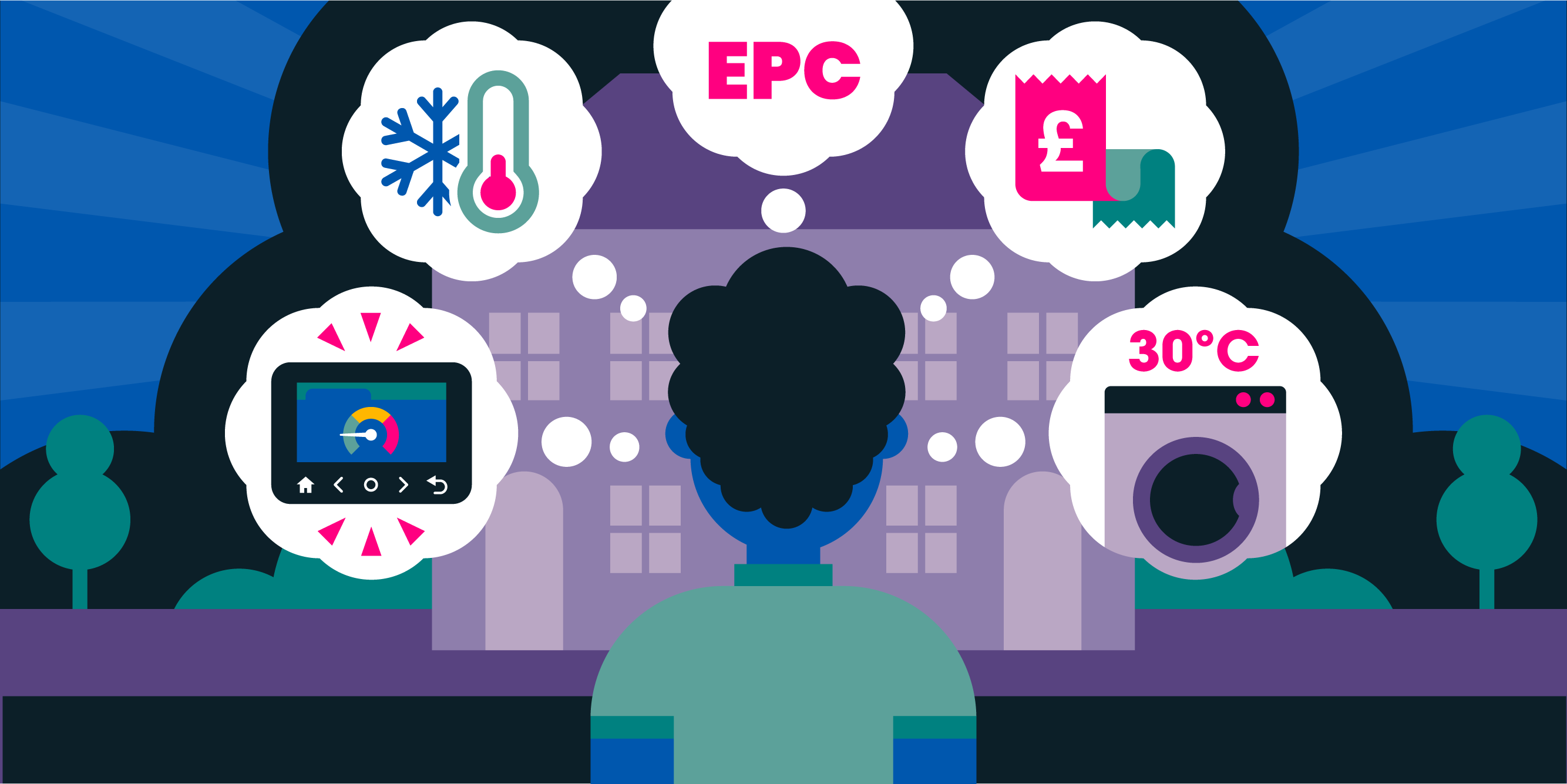The student blog: taking the stress out of your energy bills
September marks the start of a new academic year and whether you’re a fresher just starting out at university, you’ve moved into a second-year house share with your new friends or you’re a Postgraduate student, there’s a lot to think about - not only for your exams but your bank balance too!
From student loans to daily budgeting, your energy usage might be at the bottom of the list of things to keep track of. But, understanding how you’re using energy and taking some simple steps to reduce it can pay off, leaving you more money to spend elsewhere.
Why should I use less energy?
As we come into the colder months of the year and with energy costs rising, using less energy is a great place to start if you’re looking to cut your outgoings. It’s simple. The less energy you use the less you pay.
But, you can also feel good about making energy-saving changes. The less energy you use, the less dirty, non-renewable energy is being used too - cutting your carbon footprint in the process. Even if you’re on a green tariff, there can be many shades of ‘green’ and your tariff may not be as environmentally-friendly as you first expected. So using less is a great way to guarantee it. Save energy. Save money. Save the planet!
So, how do you get started? That’s where a free energy-saving tool like Loop can help. Loop is a free app that links to your smart meter, analyses your energy data and shows you easy ways to reduce usage - all on your smartphone! See which energy-saving efforts will unlock the biggest savings for you, so you know where to focus your attention.
.png?width=300&name=The%20student%20blog%201%20(1).png)
Rental considerations
Using less energy is key to saving money on your energy bill. But, the type of property you’re renting can make a difference too.
Perhaps you’re planning ahead for your second-year house share or maybe you’re looking for a change of scene for your Masters degree. Either way, when it comes to choosing your next rental, remember to scrutinise the EPC rating of the property.
An EPC rating is a review of a household's energy efficiency on a scale of A-G. If the rating is below C, the house is not very energy efficient and you’ll be paying more for energy than you should. This could be because of poor insulation levels or old inefficient appliances.
These are all costly improvements a landlord would need to arrange, so it’s an important consideration ahead of locking into a new tenancy.
House share checklist
If you’ve just moved into a house share for the first time, it can be quite overwhelming with things to organise. Follow this checklist to get up and running with your energy bill and take away some of the stress of moving day!
- 🖊️ Record your meter readings. On the day you move in, take a meter reading and send it to your new energy supplier so they know exactly how much you should be paying on your first bill.
- 📜 Notify your energy supplier. If you don’t let your new supplier know you’ve moved into your property, you could be placed on a costly tariff. Do your research and look around for a better energy deal - you can always switch.
Whilst there are no cheap deals available at the moment due to the energy crisis, it’s important to be aware of energy prices and understand that switching energy provider is easy! - ✋ Put someone in charge of the energy bills. If you’re in a shared student house, putting someone in charge of the energy bills will eliminate any confusion on who’s paying and any risk of the bills not being paid.
- 🔍 Check if you have a smart meter. If your new property doesn't have a smart meter, ask your landlord for one to be installed. Smart meters are useful because they help you get accurate bills and show your usage in real time. Seeing what you’re using and how much it’s costing will motivate you and your housemates to reduce it.

Energy-saving tips to help you save
Once you’ve settled into your new place, the hard part is over. Now it’s just a matter of making a few simple lifestyle commitments to keep your energy bills low.
- 🌡️ Turn your thermostat down by just 1 degree. This can lower your energy bill by 10%! In an ideal world, set the thermostat to something beginning with a ‘1’.
- 🍽️Share meals with your housemates! This shouldn’t be a hard one to do. Buying in bulk and only switching the oven on once will save you money. If you can cook in a microwave instead, even better as they use 80% less energy!
- 🧺Share laundry loads. One full load is far better than two small ones, so share loads with your housemates if you need to. Remember to wash your clothes at 30 degrees or use the eco mode. This uses 40% less energy than higher temperatures.
- 🔌Turn things off! Turn things off! When all your housemates leave your student property over the holiday period, make sure you empty the fridge and freezers and turn them off at the plug. Look for any other standby appliances that could be quietly costing you money.
- 💡Sharpen your energy-saving habits. Make sure that everyone in the house is clued up on the price of energy so that it’s a joint effort to do basic energy-saving tasks like turning the lights off when they’re not being used.
- ⚡Try Loop! Simply download the free Loop app, link it to your smart meter and keep on top of your energy use. Don’t end up with a nasty surprise when your next bill arrives!

• • •
With Loop, you can find out how you use electricity, then make smart decisions about using less.
Got a smart meter? Great news! Link the Loop app and enjoy full access to all Loop benefits for free, no purchase required.








